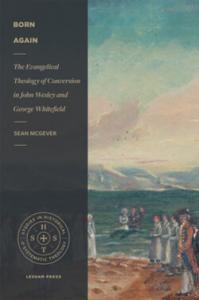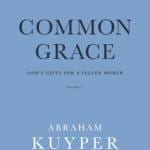Just what is ‘conversion’ anyway? It is something which Christians have always taught is a necessary precondition for entrance into the faith. But how are we to understand the biblical injunction to ‘repent and be baptized’? Christians have disagreed with the answer to this question in good faith through the centuries. Sean McGever’s Born Again: The Evangelical Theology of Conversion in John Wesley and George Whitefield is a contribution to this ongoing discussion.

And an important warning at the outset: Born Again is a robustly academic book. It is not for the faint of heart or the theological beginner. If you try to begin your exploration of conversion with this book, you’ll find yourself in the theological deep end. (In fact, I wouldn’t be surprised to learn that this book was originally a dissertation.) Which isn’t to say the book shouldn’t be read–just be aware that this is not a work of pop theology.
Neither is it a work of theological bomb-throwing, nor of historical revisionism. Instead, it is a careful and thorough breakdown of exactly what the subtitle promises: the ‘theology of conversion in John Wesley and George Whitefield.’ In two chapters, McGever gives an analysis of the components of Wesley’s theology of conversion and the ‘attendant themes’ (i.e. baptism, assurance, etc). Likewise Whitefield gets two chapters breaking down his theology of conversion and the parallel ‘attendant themes.’ The final two chapters (really, a chapter and a half–given how short the conclusion is) compare and contrast the two different theologies, with an emphasis on how similar they are at the end of the day. The included chart comparing the two is especially helpful as a summary of the whole argument of the book.
McGever’s goal is surely a good one:
“This account has sought to show that Wesley and Whitefield had largescale agreement in their theological understanding of conversion as inaugurated teleology [where ‘inaugurated teleology’ is the beginning of a focus on the final union with Christ]” (214)
The parallels between the specifics of conversion are many, and the divergences are few–albeit critically important. Of course Wesley was an Arminian and Whitefield believed in the Bible. Kidding! Whitefield was a Calvinist, but what McGever points out is that these differences primarily came only at very specific points in their theology of conversion–namely, in the ‘hidden decrees’ of God prior to conversion and at the end of the sanctification process with (for Wesley) the possibility of perfection. The bulk of their doctrines in between were largely in agreement, which I think is a fair way to characterize thoughtful Arminians and Calvinists in general. Or at least I hope it is…
So if you are looking for a book that helps you dig into the details of the conversion theologies of Wesley and Whitefield, and by extension the broader differences between Arminian and Calvinist views of conversion, Born Again is a rigorous overview of just those things.
Dr. Coyle Neal is co-host of the City of Man Podcast and an Associate Professor of Political Science at Southwest Baptist University in Bolivar, MO












